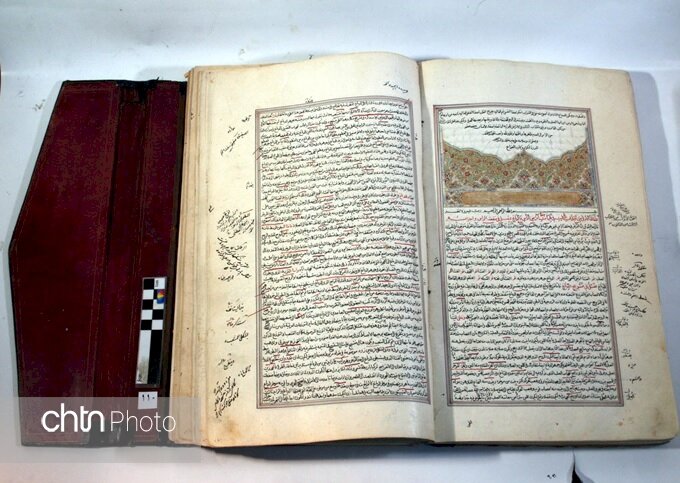Avicenna’s Canon of Medicine added to National Heritage list

TEHRAN – A rare magnificent manuscript of Avicenna’s Canon of Medicine has been added to Iran’s National Heritage list.
The manuscript of Avicenna’s Al-Qanun fi al-tibb (“The Canon of Medicine”) was concurrently put on the list with ten other historical moveable properties, all of which sourced in western Hamedan province, the Ministry of Cultural Heritage, Handicrafts, and Tourism announced on Saturday.
A leather-inscribed Torah, scroll painting of Muharram ritual, gold earrings, and some clay and copper utensils constitute other entrees to the prestigious list.
Avicenna (born 980, near Bukhara, Iran [now in Uzbekistan]—died 1037, Hamadan, Iran) was the most famous and influential of the philosopher-scientists of the medieval Islamic world.
He was particularly noted for his contributions in the fields of Aristotelian philosophy and medicine. He composed the Kitab al-Shifa (Book of the Cure), a vast philosophical and scientific encyclopedia, and Al-Qanun fi al-tibb (The Canon of Medicine), which is among the most famous books in the history of medicine.
Known in classical times as Ecbatana, Hamedan was one of the ancient world’s greatest cities. It was the capital of Media and subsequently a summer residence of the Achaemenian kings who ruled Persia from 553 to 330 BC. Ali Sadr cave, Ganjnameh inscriptions, Avicenna Mausoleum, Hegmataneh hill, Alaviyan dome, Jameh mosque, and St. Stephanos Gregorian Church are amongst Hamedan’s attractions to name a few.
ABU/AFM
Leave a Comment